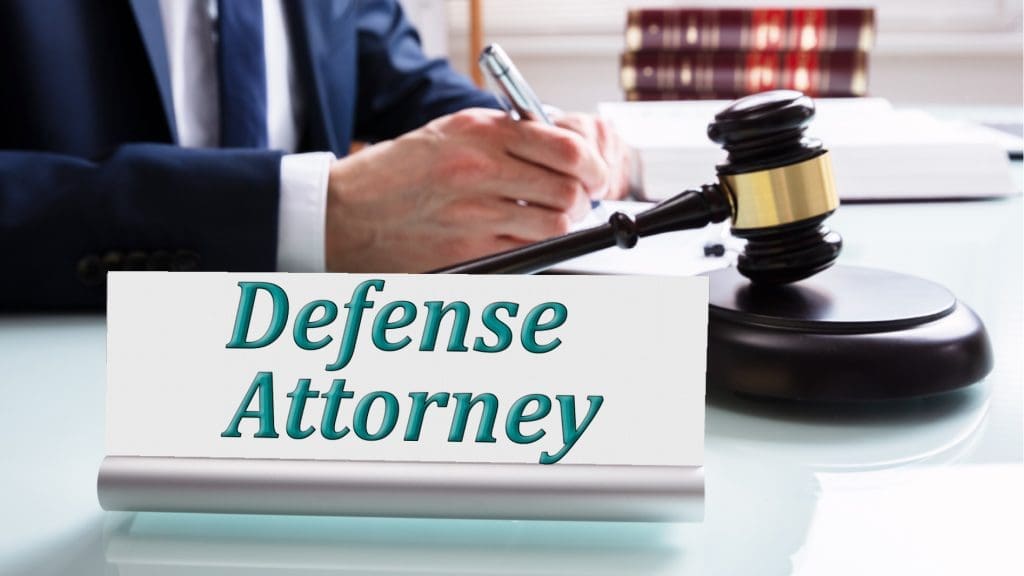THE GAME PLAN – For A Successful Criminal Defense
by the late Mark Sullivan, Board Certified Criminal Defense Attorney, Palm Springs, California. Originally printed in 2004 and reprinted with permission from Crime, Justice and America magazine
Clients choose their lawyer based upon a number of factors, but one is most common. Everyone wants to know what the attorney is going to do, and how their defense is going to be conducted.

The reason I’m successful defending criminal cases is simple: Hard work. With hard work, an attorney develops and implements a game plan and sticks to it.
WHAT IS THE GAME PLAN?
For every case, we start out with the same basic game plan:
- Study the discovery the prosecution gives us;
- Force the prosecutor to give us everything we need;
- Interview the client;
- Expose and attack weaknesses in the prosecution’s case;
- Perform our own investigation;
- Research and know the law;
- Devise a defense strategy (Create a ‘theme’ for the case);
- Outwork the prosecutor;
- Prepare the case for trial
STUDY THE FACTS
This means we carefully read all the police reports and the documentation the prosecution gives us. That provides us with a starting point — but we must keep in mind that police reports are self-serving documents, written by them to justify the police officer’s conduct. Most of the time, they do not give a balanced or fair presentation of what actually occurred. But sometimes they can point us to areas that need independent investigation. The lawyer who knows the case better than his opponent is more likely to prevail.

INVESTIGATE THE CASE
This means we use our own investigator to look into the facts of the case, and to prepare (for effective cross-examination) research into the motives and reliability of prosecution witnesses. Sometimes a frustrated prosecutor will argue to the jury that the police officer is not on trial here. My response is that anyone who testifies against my client is on trial, because I put him or her on trial. The law allows me to do that, and I do. Their motives, their ability to recollect, and their honesty and reputation are on trial.
RESEARCH THE LAW
This seems obvious, but you’d be surprised how many times cases are handled without a thorough research of the law. Laws changes from time to time, and it’s very important to keep abreast of the changes. There are so many different procedural and substantive aspects to even a simple case, a good litigator must be on top of all the changes.
DEVISE A STRATEGY
Every case has a theme. That captures the jury’s interest. The best theme is one that captures the imagination of the jury.

Lawyers sometimes get “shotgun” defenses from their clients. For example:
- They weren’t my drugs; and
- The cops violated my rights; and
- They only found residue; and
- ’m not a criminal; and
- The cops were watching me; and
- They weren’t for sale; and
- I was at the wrong place at the wrong time; and
- I didn’t know they were illegal; and
- I wasn’t read my rights; and
- This is my first offense; and
- I have a drug problem; and
- I don’t sell drugs; and
- I’ll never sell drugs again.
A successful attorney knows that he can’t attack a case with a shotgun approach, although he starts with many options. Eventually, he has to devise a consistent and dynamic defense theory, usually one designed to expose the weaknesses in the prosecution’s case, and this usually takes time and effort.
FILE MOTIONS
The usual motions we file involve compelling discovery (forcing the prosecution to expose more of their case than they wanted), obtaining exculpatory evidence, and streamlining the prosecution’s case (dismissing certain counts). The fewer charges the defendant is facing, the lower his exposure, the less evidence is admissible, and the better chance the defense has of getting an acquittal. But there are a number of common motions, specifically those to suppress evidence, litigate the search and seizure issues, exclude evidence of involuntary confessions, dismiss for procedural violations, disclose confidential informants, disqualify judges or prosecutors, etc.
PREPARE FOR TRIAL
We prepare every case as if it is going to trial, even those cases we believe (confidentially) will not go to trial. This is the best practice. Even when the client tells us that he has no intention of going to trial and risking a guilty verdict, we still prepare as if we’re going to trial. When cases are litigated vigorously before trial, plea bargain offers get better.
The more work a defense attorney can force upon a prosecutor, and the more creative he can be in his motions, especially those that have a downside risk to them, the more likely the prosecutor wants to get rid of the file, which reaps favorable results for the defense. So the best strategy is to scare the prosecutor into thinking he’s going to lose, outsmart him, or outwork him. Preferably, all three. The cases that do eventually go to trial stand a much better chance of success if they are thoroughly litigated beforehand. The defense attorney has to know more about the case than the
prosecutor if he wants to win.

COMMUNICATION
Clients’ most common complaint, by far, is that their lawyer doesn’t return phone calls. I personally return calls as quickly as possible. I’m also one of the few criminal defense attorneys who publishes his home number, so clients can call me (collect if necessary) in case of emergency. I even provide my clients with my cell phone number, which I’ll only fail to answer when I’m in court or occupied with another important matter.
GOING TO TRIAL
Fewer than one half of one percent of all California lawyers are certified as Criminal Law Specialists by the State Bar of California’s Board of Legal specialization, because of extremely demanding professional and ethical requirements.
As a Criminal Law Specialist, I have the training, experience and competence to take just about any case to trial. I take the position that there are no hopeless cases. Every case can be defended, even in the face of a confession.
Whenever a case goes to trial, there is usually at least one surprise. Witnesses fail to show up to court, they testify differently than expected, sometimes they admit that they were being less than honest when first questioned, etc. Evidence sometimes is admitted or excluded by a judge’s ruling which comes as a surprise to the attorneys, and this can cause a party’s case to be seriously damaged.
Because these surprises can affect either side, the more experienced and better-prepared trial attorney is better equipped to handle the unexpected, and use it to his or her advantage.














